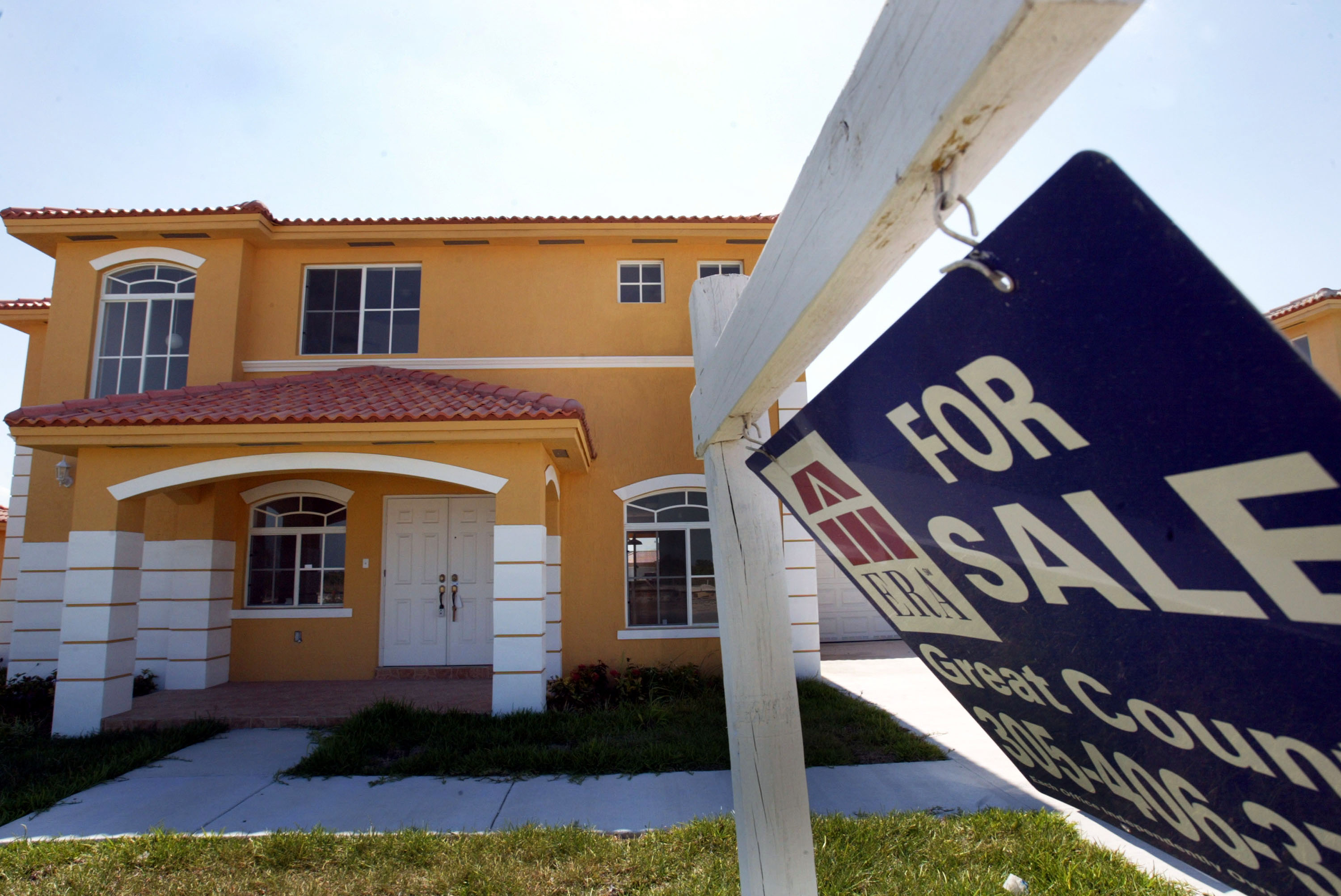Real estate: A looming end to the long boom
What happens if home prices go down?

A free daily email with the biggest news stories of the day – and the best features from TheWeek.com
You are now subscribed
Your newsletter sign-up was successful
The smartest insight and analysis, from all perspectives, rounded up from around the web:
The "booming housing market is stalling out," said David Harrison and Nicole Friedman in The Wall Street Journal. Trapped between near-record prices and soaring mortgage rates, buyers are pulling back. In July, figures released last week show, sales of existing homes slipped by 5.9 percent — a sixth straight month of decline. Sales of newly built homes fell even more, declining 12.6 percent for the month, and down nearly 30 percent from a year ago. "Homebuilding is also drying up, and mortgage applications are falling." Housing has seen prices advance relentlessly, rising 46 percent nationally in just the past three years. Now home affordability is the lowest it has been since 1989, and the market has turned quickly. The one reason prices remain high is that "years of depressed new-home construction following the 2007–09 recession have left the housing market undersupplied."
Will home prices just "flatten" out, or "collapse"? asked Jonathan Levin in Bloomberg. Both the industry and economic policymakers think it's likely to be the former. The Fed wants to make housing more affordable, and bring home price increases down to 5 percent a year. But this is "treacherous territory," and once prices start slipping it's hard to predict where they will end up. Less than six months ago, home values in California were surging. Then San Francisco and San Jose saw steep declines. A few other markets, like Austin and Seattle, followed. Now prices are falling in 22 of the 100 biggest U.S. markets. Americans are less indebted now than they were during the mid-2000s housing crisis, "which means there probably won't be a round of forced selling." But "a lot of things have to go right" to avoid a broad fall in prices. Homeowners and brokers are being too optimistic, said Jonathan Ponciano in Forbes. Homebuilders, who may have the best insight into demand and costs, are much less confident. Close to one-fifth of them have "slashed prices to help bolster sales or limit cancellations." This is starting to look more and more like a "housing-market recession."
The Week
Escape your echo chamber. Get the facts behind the news, plus analysis from multiple perspectives.

Sign up for The Week's Free Newsletters
From our morning news briefing to a weekly Good News Newsletter, get the best of The Week delivered directly to your inbox.
From our morning news briefing to a weekly Good News Newsletter, get the best of The Week delivered directly to your inbox.
"Americans who lived through the 2008 crisis may be watching the red-hot market starting to cool and getting flashbacks," said Sigrid Forberg in Yahoo Finance. The situation today, though, is very different. Lenders have been far less lax, so there are fewer homeowners unable to meet payments. Overbuilding in the 2000s meant there was an oversupply of housing. Today, by contrast, "there's a huge demand and a shortage of supply." Just remember that a 2008-style collapse is far from the only danger to the housing market, said Allison Schrager in Bloomberg. Even if there is not a steep decline, there will be a serious "hangover from the very low rates in 2020 and 2021." The Fed brought interest rates to unnatural lows — as little as 2.65 percent — with its economic stimulus. Buyers who bought in 2020 and 2021 will be very reluctant to sell or trade up, and "the housing market may be slower and less liquid for a long time." I'm one of those buyers. I got my house in 2021, benefiting from rock-bottom rates. Now "I am not sure I can ever afford to move."
This article was first published in the latest issue of The Week magazine. If you want to read more like it, you can try six risk-free issues of the magazine here.
A free daily email with the biggest news stories of the day – and the best features from TheWeek.com
-
 Nuuk becomes ground zero for Greenland’s diplomatic straits
Nuuk becomes ground zero for Greenland’s diplomatic straitsIN THE SPOTLIGHT A flurry of new consular activity in the remote Danish protectorate shows how important Greenland has become to Europeans’ anxiety about American imperialism
-
 ‘This is something that happens all too often’
‘This is something that happens all too often’Instant Opinion Opinion, comment and editorials of the day
-
 House votes to end Trump’s Canada tariffs
House votes to end Trump’s Canada tariffsSpeed Read Six Republicans joined with Democrats to repeal the president’s tariffs